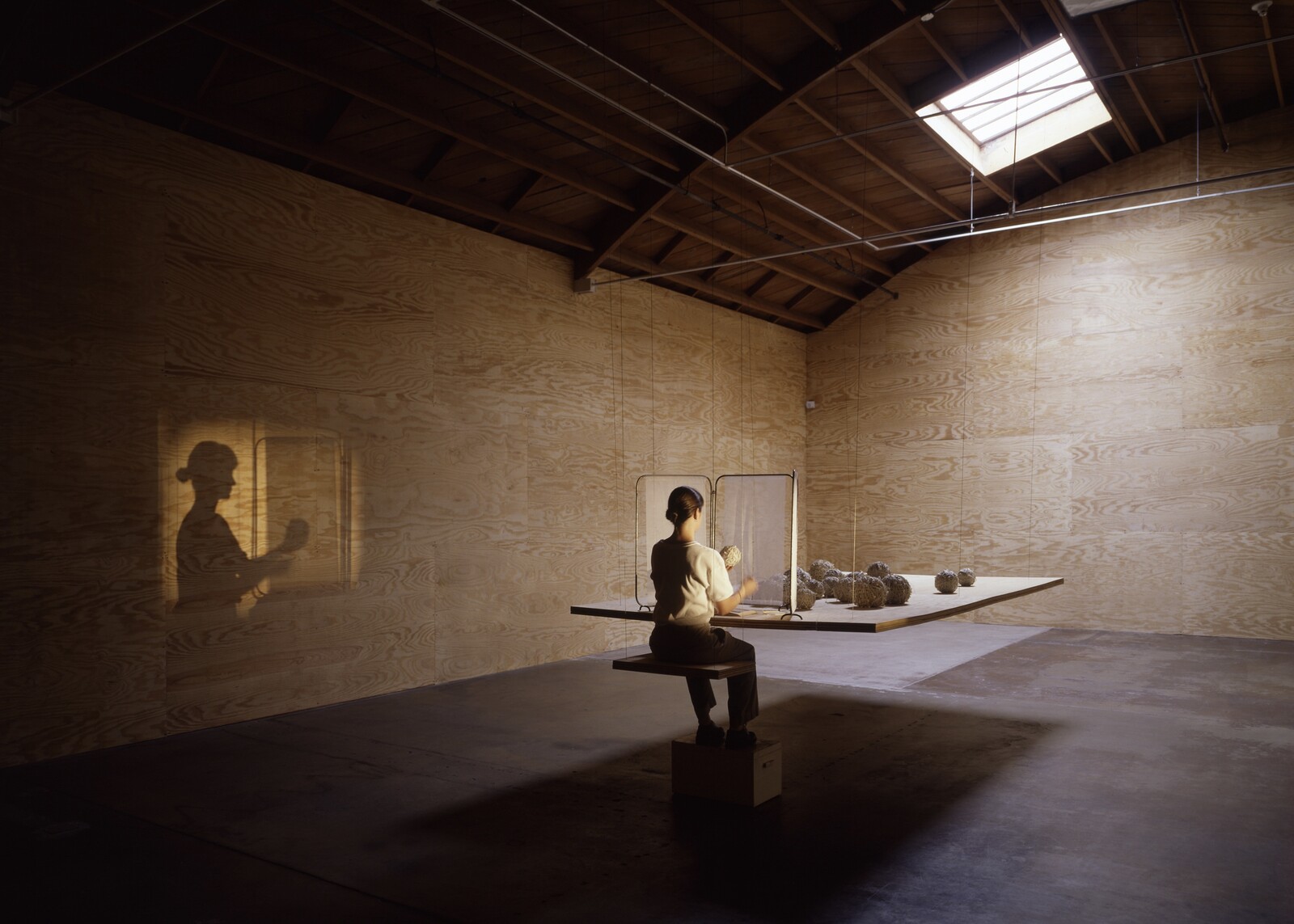October 18–December 4, 2022
Hangzhou Museum, Hangzhou
No.138 Nanshan Road
Hangzhou
China
There is a “cosmotechnics” inherent in Mì/Sī, the radical for “silk” in the Chinese language, such as the archetypes in conceptions of “relation”: clue(Xiànsuǒ), organization(Zǔzhī), web/network(Wǎngluò), system(Xìtǒng); the general name of colours: red, green, purple, scarlet, crimson; and “Wén”, which means, together in one word, text, texture, culture, and civilization. These come from the form of silk since the time of ancient China, alert us that fiber/textile is the basic construction of the world, as well as the phenomenon of and universal metaphor for human thought.
Drawing inspirations from fiber/textile, the curatorial team of the 4th Hangzhou Triennial of Fiber Art propose the term “Huǎn Cún Zài” to suggest a redefinition and a re-interpretation of “art”: the way “art” occurs and exists is a kind of “theoria-being”.
This is echoed in the English translation, “Being Theoria”, which itself derives from Aristotle’s “theoria” (contemplation) from the time of ancient Greece. Poesis(techne)/praxis/theoria come from the “three activities” categorized by Aristotle. “Being Theoria” reacts to the divide between art emphasizing production (techne) and art emphasizing participation and intervention (praxis) today.
There is also an intertextuality between the Chinese and the English titles. “Huǎn Cún Zài” is a combination of two words: huǎncún (cache) and cúnzài (being). Huǎn means slow, moderate, or postponed; it belongs to the radical of Mì. Meanwhile cúnzài is the equivalent of the philosophical term “being”. Huǎn Cún Zài could be understood as “postponed-being” or “cached-being”, and huǎncún is the translation of “cache” in computerese but could literally mean “storing/existing slowly”, which is the daily life situation of the pandemic.
From the initial moment, the curatorial team has defined itself as “weavers”, inviting artists and scholars to join in and establish connections, and form a network of Research Weavers responding to a reflective fiber-world. The triennial is not segmented but linked up through several “clues”, viz. characters with the silk radical: “Wén” (text/texture/culture/civilization), “Xù” (emotion/thought), “Xiàn” (lines/trajectory), “Zhī” (weave/labor), “Wǎng” (net/web), “Jié” (tying knots), and “Zōng” (diversity/complexity). These clues are intertwined in space and are presented as a series of immersive “Theoria Space” for people to linger in and meditate.
The notion of the city project “Jingyin | Pure Reason” draws from the Buddhist doctrine “Jingyin” (literally, pure cause [hetu]) as well as Kant’s “Pure Reason”. It extends “Being Theoria” and the boundary of fiber art, forming a cross-civilizational dialogue via an ongoing curatorial and artistic weaving.
Exhibition Director: Ying Jinfei
Artistic Director: Shi Hui
Chief Curator: Liu Tian
Co-curator: Liu Yihong, Ying Xinxun, Iris Long, Wang Hongzhe
Assistant Curator: Xi Tianhao, Duan Xin, Zheng Linyixin, Ren Yue
Project Coordinator: Gu Wenjia, Wu Jiayu, Xu Xiaoxiao, Zhao Jin
Being Theoria, Zhejiang Art Museum
Artists: Bai Qingwen, Joseph Beuys, Bi Rongrong, Cai Yaling, Chen Han, Chen Chieh-jen, Chen Wei, Chen Zhe, Christo and Jeanne-Claude, Ivana Franke, Gazetteer-novel Collective, Nathalie Gebert, Guo Cheng, Guo Yaoxian, Growing House Team, Ann Hamilton, Ho Rui An, Huang Yan, Zilvinas Kempinas, Alice Kettle, Li Haibing, Liao Fei, Lin Gang, Liu Guoqiang, Liu Jiajing, Liu Jun, Xin Liu, Liu Yujia, Assadour Markarov, Annette Messager, Peng Ke, Constanza Piña, Qin Dali, Raqs Media Collective, Kathrin von Rechenberg, Evan Roth, Ruan Yuelai, Inder Salim, Shi Hui, Shi Qing, Song Chunyang, Aiko Tezuka, The Eight Immortals Crossing the Sea, Tong Wenmin, Wang Lei, Weaving Jungle, Bignia Wehrli, Xin Qi, Yang Chi-Chuan, Yi Group, Zhao Yao, Zheng Bo, Zhou Wenjing
Pure Reason, Hangzhou Museum
Artists: Chen Chieh-jen, Chen Zhe, Christine Sun Kim & Thomas Mader, Li Weiyi, Liao Fei, Nabuqi, Inga Svala Thórsdóttir & Wu Shanzhuan, Ali Van, Lantian Xie/Aarushi Surana/Aasma Tulika/Kaushal Sapre/Alla Semenovskaya, Wang Xu, Wu Ding, Yu Ji














